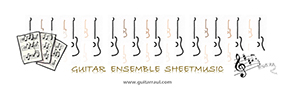Gideon Brettler
This article examines the Italian music-printing industry in the seventeenth century from two distinct perspectives. The first revisits the industry’s decline and the circumstances that led to that state of affairs. The second traces the unlikely commercial success of the guitar tutors of Pietro Millioni, offering a glimpse into the inner workings of the industry. A quantitative analysis of production patterns using a newly constructed database of seventeenth-century Italian music prints provides a nuanced view of the rise and fall in output across various printing centers. Cross-referencing these data with an analysis of the corpora of the leading printing houses of Venice and Rome exposes various idiosyncrasies of these two centers of music printing and suggests that the downturn in production was driven not only by domestic conditions but also by the gradual decline of Venice as a dominant international economy. The music in the Millioni books is printed with an idiomatic notation for the guitar known as alfabeto. The simplicity of alfabeto notation offered the musically illiterate an accessible path to music making, while its typographical features offered printers a cheap and easy method of printing music without specialized equipment or expertise. The continued success of these books in a contracting market demonstrates the significant appeal of this music for both printer and consumer, which contributed to the codification of oral musical traditions in print. The reconstruction of the genealogy of the Millioni books discloses numerous commercial ties between publishers, as well as their influence over musical content.





